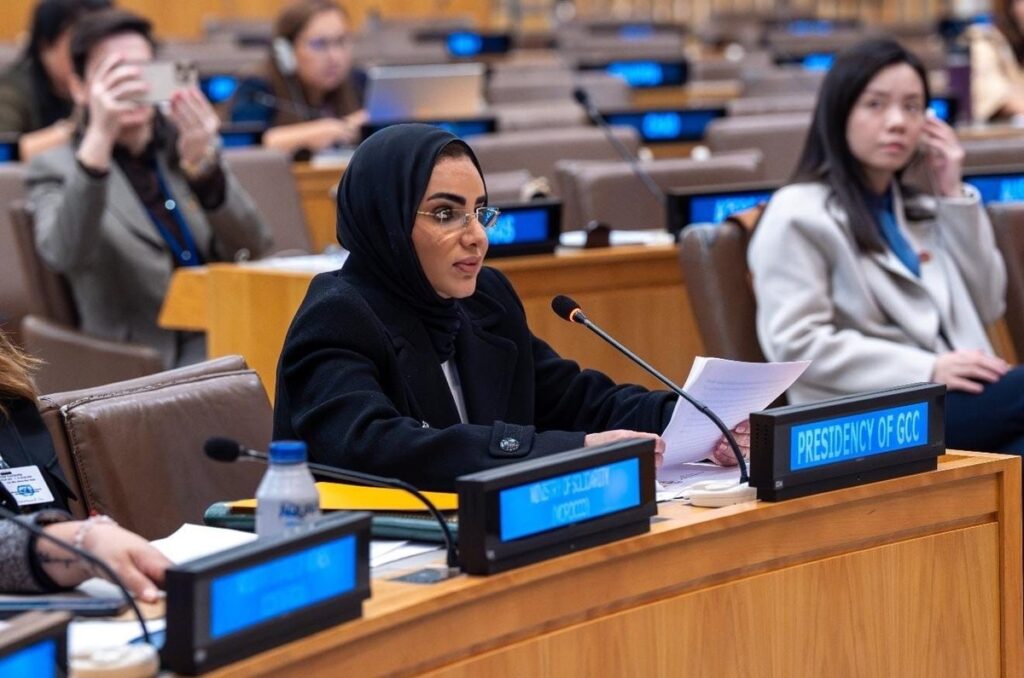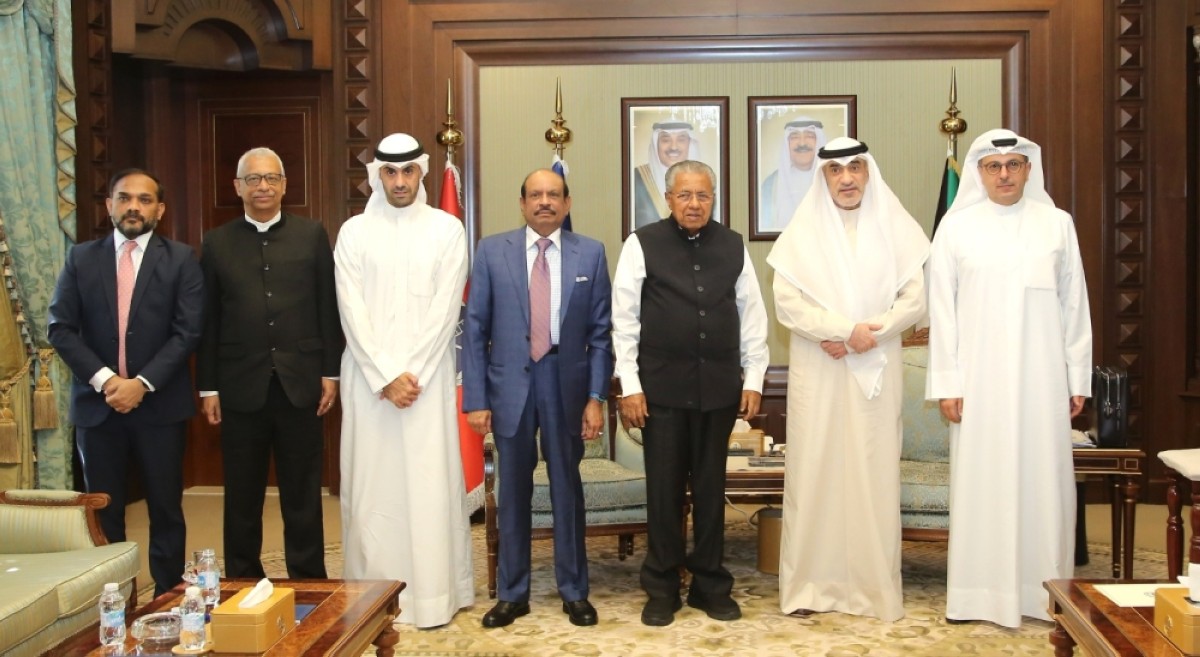Kuwait’s Vision for Stronger Families Takes Center Stage
At the Doha summit on social and family development, Kuwait’s commitment to strengthening family bonds and nurturing social well-being captured regional and international attention. Representing the State of Kuwait, Minister of Social Affairs, Family, and Childhood, Sheikh Feras Saud Al Huwailah, highlighted the nation’s progressive family support policies and the country’s holistic approach toward sustainable human development.
His participation reaffirmed Kuwait’s leading role in building cohesive, inclusive, and compassionate societies, grounded in the principles of equality, education, and community care. The Doha summit, attended by ministers, policymakers, and social experts from across the Arab world, became a powerful platform for sharing success stories and building frameworks for future collaboration.
Al Huwailah’s address carried not only the voice of Kuwait’s government but also the aspirations of families who stand as the backbone of national development. His message resonated with the summit’s central theme—empowering families to thrive in a changing world while safeguarding social identity and unity.
Championing Family as the Core of Society
Minister Al Huwailah emphasized that Kuwait’s development strategy begins at home. Family is not merely a social unit—it is the foundation upon which Kuwait builds its future generations. The government’s family support initiatives focus on empowerment, protection, and education, ensuring that every member of society has the opportunity to contribute positively.
He outlined several key programs that underscore Kuwait’s dedication to social welfare: childcare support systems, inclusive family counseling centers, and community-based programs that foster intergenerational understanding. Kuwait’s approach has been holistic, combining education, healthcare, and social services to create an environment where every family can flourish.
The minister spoke passionately about the importance of preserving cultural identity while embracing modernization. He highlighted that true progress stems from nurturing values of respect, compassion, and shared responsibility within families—values deeply rooted in Kuwait’s heritage.
Policy Innovations Driving Social Well-being
Kuwait’s family policies are grounded in the belief that a strong society depends on stable and supported households. Under Al Huwailah’s leadership, the Ministry of Social Affairs, Family, and Childhood has initiated several transformative policies aimed at promoting social inclusion, gender balance, and child welfare.
Among the most impactful measures are family protection centers that provide assistance to women and children facing social or domestic challenges. These centers combine psychological support, legal guidance, and educational outreach, helping to build resilience and restore dignity to families in crisis.
Kuwait has also expanded programs for single parents and working mothers, ensuring access to quality childcare and flexible working arrangements. The government has invested in digital systems to streamline access to social services, making it easier for families to receive support without bureaucratic barriers.
Al Huwailah underscored that social policies are not static; they evolve with the changing needs of the population. Kuwait continues to study global best practices while adapting them to local realities, ensuring that modernization never comes at the expense of cultural cohesion.

Empowering Women and Youth for Sustainable Progress
A major highlight of Al Huwailah’s speech was Kuwait’s commitment to empowering women and youth as agents of change. The minister praised the growing participation of women in leadership, entrepreneurship, and community development, noting that their inclusion has strengthened family structures and economic stability.
Kuwait’s national programs encourage young people to take active roles in social initiatives, innovation, and volunteerism. Youth engagement has become a cornerstone of national development, reflecting Kuwait’s belief that the energy and creativity of its young population are vital for a prosperous future.
By integrating family education into schools and universities, Kuwait aims to instill values of empathy, cooperation, and civic responsibility from an early age. This approach ensures that future generations are not only academically accomplished but also socially conscious and emotionally grounded.
Collaboration and Unity at the Doha Summit
The Doha summit provided a valuable space for regional collaboration. Minister Al Huwailah emphasized the importance of collective effort among Arab nations in addressing shared social challenges. He expressed Kuwait’s readiness to exchange expertise and support initiatives that reinforce family stability and community development across the region.
The discussions covered topics ranging from digital safety for children to financial literacy and parenting in the modern age. Kuwait’s delegation shared data-driven insights into how policies can adapt to new societal trends while maintaining ethical and cultural balance.
Through bilateral meetings and roundtable dialogues, Al Huwailah reinforced Kuwait’s reputation as a country deeply committed to humanitarian principles. His engagements reflected Kuwait’s broader diplomatic approach—building bridges through compassion, understanding, and mutual respect.
Investing in Family Health and Mental Well-being
One of the most profound messages from Al Huwailah’s address was the call to prioritize mental health and emotional stability within families. He emphasized that physical well-being cannot be achieved without psychological support, especially in a world where stress, technology, and social change are reshaping relationships.
Kuwait’s Ministry of Social Affairs has expanded community-based mental health programs, offering family counseling and stress management workshops. These services aim to promote dialogue, prevent family breakdown, and create safe spaces for individuals to express their concerns.
The government’s investment in preventive health education ensures that families are well-informed about nutrition, parenting, and work-life balance. By linking healthcare and social support, Kuwait is building a model that recognizes the family as an ecosystem where physical, emotional, and social well-being intersect.
Balancing Tradition and Modernity
In his remarks, Al Huwailah acknowledged the delicate balance between preserving traditions and adapting to modern realities. Kuwait’s social model respects cultural heritage while embracing innovation, ensuring that families evolve without losing their identity.
He highlighted that technology can be both a challenge and a solution. Kuwait is harnessing digital tools to enhance family education, promote online safety for children, and connect citizens with essential services. Programs such as digital family learning platforms help parents and children navigate the modern world together while staying connected to their values.
Through these initiatives, Kuwait continues to demonstrate that progress and tradition are not opposing forces but complementary paths toward sustainable development.

Inclusive Support for All Families
Kuwait’s family policy framework extends inclusivity to all segments of society, including people with disabilities, the elderly, and vulnerable populations. Al Huwailah shared Kuwait’s efforts in creating accessible infrastructure, social inclusion programs, and vocational training for people of determination.
Senior care centers have been reimagined as community hubs where the elderly remain active, engaged, and respected. Intergenerational programs bridge the gap between youth and seniors, reinforcing the bonds that hold families together.
By recognizing diversity within the family structure, Kuwait ensures that every individual, regardless of circumstance, has the support needed to lead a dignified and fulfilling life.
Strengthening International Partnerships
Minister Al Huwailah reaffirmed Kuwait’s dedication to international cooperation, particularly in sharing knowledge and best practices on family empowerment. Kuwait’s participation in regional and global forums underscores its belief in diplomacy through development building relationships rooted in shared values and humanitarian goals.
At the Doha summit, Kuwait called for stronger collaboration between governments, civil society, and international organizations to enhance family welfare programs and social protection networks. Al Huwailah emphasized that effective family policy is a shared responsibility that transcends borders.
He also pointed to Kuwait’s consistent contributions to humanitarian causes worldwide, reflecting the nation’s ethos of generosity and solidarity. Kuwait’s leadership continues to view family well-being as a cornerstone of global peace and prosperity.
Building a Compassionate Future
As the summit concluded, Al Huwailah’s message left a lasting impression: family is the heart of every nation, and supporting it is both a moral and strategic duty. His vision for Kuwait’s social future is rooted in compassion, inclusivity, and foresight a future where no family is left behind.
The minister’s remarks inspired dialogue among participating nations, many of whom expressed admiration for Kuwait’s progress in harmonizing tradition with innovation. By sharing its journey, Kuwait reaffirmed that the strength of a nation lies in the unity of its people and the well-being of its families.
Looking ahead, Kuwait continues to refine its policies, invest in social innovation, and champion cooperation across the Arab world. Through empathy, education, and empowerment, Kuwait is shaping a society where every family thrives and where every individual feels valued and supported.
A Model for Regional Inspiration
Kuwait’s story at the Doha summit stands as a reminder that real development begins within homes. Al Huwailah’s leadership reflects a growing awareness that family-centered policies are essential for national resilience and social harmony.
As countries across the region look for sustainable models of growth, Kuwait offers an inspiring example: progress anchored in values, guided by compassion, and driven by community.
Under Sheikh Feras Saud Al Huwailah’s vision, Kuwait’s family support policies will continue to evolve, reflecting a society that not only adapts to change but leads it through unity, humanity, and heart.
Do follow Gulf Magazine on Instagram.
Also Read – Cross Dressing Trend in Kuwait Colleges: Youth Identity and Cultural Expression



